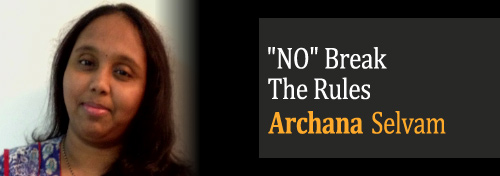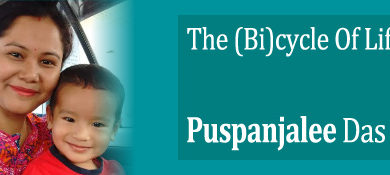“NO” Break The Rules
Recently the news highlights were about kids of Indian origin living abroad being sent to foster care, leaving behind the devastated parents in tears and shock and also landing a few in Jail.
Travelling abroad with kids for the first time… Learn the child protection laws of the country and follow the rules not to lose your child to foster care. Whenever we are to travel abroad we all immediately start googling to find out the Indian restaurants nearby, Indian Communities, Hang outs and stuff, but if you are planning to travel with your children first Google that country’s child protection laws and for any state specific laws.
Firstly the question to pop up would be… What is foster care?
In the western world it is the name given for an organized orphanage (group care) or a temporary or permanent adoption by an authorized family (family care). Any displaced children or children who have to be removed from their own family for protection reasons, are placed in foster care. These are carried out by child protection agencies run by the government.
These terms are pretty new and unheard in India, where we have a strong culture and have a very well organized and well structured family. On the day one of the pregnancy we start loving, caring, planning and living for our unborn child. There is no question of someone peeping into your doors to see how we are taking care of our children. This is not the case everywhere around the world.
There are a lot of children living with step parent, single parent, very young parents or even very old parents where they have a lot of chances of undergoing physical and physiological abuse and for being neglected. Therefore there are strong child protection laws enforced to protect the children from abuse and provide a safe environment. This doesn’t mean that there is no abuse happening in India, it does happen everywhere, but one’s home is the safest place to stay and the parents are the protection for any child. Abuse by parents may happen in a very negligible numbers in India. May be that is why we are unaware of this concept yet in India.
Broadly speaking, every country has certain child protection laws in place…
- Primary law is to protect any child from physical, mental and sexual abuse. This is a straight forward law. Anywhere around the world this is a crime.
- Secondly, if the parent is an alcoholic or drug addict then the child is removed from the parent and sent to foster care.
- Another major reason is due to NEGLECT. Here comes the hardest part, to know what is termed as NEGLECT. Anything can be named as Neglect in a country. Many Indian children were sent to foster care based on this category of “Breaking the Rules”. I went to read through the reasons termed as Neglect which sent the children to foster care. A few among them were feeding the children with hands, co-sleeping with infant and toddler, slapping the child, feeding them mostly yogurt and rice (curd rice), a child told ‘my father is a bad man’. Shocking isn’t it. Most of them are so common in India. This clearly shows that there is a lot of cultural difference. We can understand better when we look into the detail of these cases.
- Feeding in spoon does happen in India, but you can still see the grandmother’s feeding their grandchildren with their hands, not just the food but all their love too. They still do believe that feeding with hands is more safe and comfortable than pushing the food into their mouth with a spoon. My daughter grew up just eating curd rice until she started her preschool. Curd rice is one of the early foods given to infant in India. It is the preferred food in many households. Whereas in the western world the child is left to feed by himself from the time he turns one. They believe in protein rich food and only consider scrambled eggs and sausage as healthy and nutritious breakfast. Most of the Indians being vegetarians who do not even eat egg, they do take other healthy alternates.
- Any parent wouldn’t slap or beat their children to cause them pain. I wouldn’t mind giving an occasional simple slap/pat to my super active daughter who is trying to pull of her hand to run and explore the world by herself in the middle of crossing the road. When I know my slap is not going to hurt her more than she running to the middle of the road, I would definitely go ahead and slap her (A typical Indian Parent attitude). But I can’t do this when I stay abroad.
- Co-sleeping is the most common one in India. I have not seen anyone place their 10-15 days old infant in a separate room and let them cry and sleep by themselves. Even when the child is placed in a crib or cradle, they are placed in the same room. The kids are later moved to Parents king size bed. A well grown toddler (or even a couple of years later) is given his/her own room. That is why we are not aware of the term SIDS (Sudden Infant Death Syndrome), where the infant is sadly dead sometimes for no known reason in their crib in the next room. There are advantages of sleeping in a separate room too, the child learns to fall asleep by themselves and get into a routine and the parents get a good night’s sleep. I wouldn’t mind giving up on my sleep for a couple of years to co-sleep with my child, infant leaving them in another room would make me more sleepless.
- Children might use the word “BAD” for anything. This need not be only for abuse. When I deny to buy the 10th Barbie doll for my daughter, she immediately says “you are a very bad mommy, I hate you”. When coming out of the shop I pick her favorite Ice cream or chocolate she would say the next minute… “You are the world’s best mommy, I love you so much”. Forgetting the previous event of hating mommy and behaves as if that never happened.
There are a couple of other rules which are based on the environmental and life style practice.
- Until recent years no one used child seat in India. Infant to a teenager travel with parents on a two-wheeler, which is the most common means of commutation suitable for our roads and traffic. Leave behind the permit able speed limit, we can’t even drive half the speed limit most of the times (Mostly we don’t even know the speed limit). Leave behind the highway speed, the minimum speed limit in a residential area is more than our maximum speed limit. This requires every child to be placed in a child seat for their safety and children below certain height limit or age are not allowed to be seated in the front seat.
These laws are strictly enforced and we might end up paying huge fines and get points on the driver’s license. I have been squeezing between two baby seats for two years and finally my little one has grown up to sit by himself, without me sitting next to him atleast for short distances.Every time we take him out of his seat it is a big challenge for us to put him back in the seat. There are a lot of hardships in this, still it is the law and has to be followed. I have seen a couple of Indian families have their infants in hand without even fixing the car seat, inviting their own trouble.
- Lot of Indian families have a practice of leaving behind the children above 5 or 6 years at home. Mostly we have got grandparents at home or atleast living a couple of blocks away. Even we don’t have our own relatives we atleast good neighbors who would come to help on a call. The law abroad doesn’t permit you to leave your children below certain age (8-14 years) to stay home alone. Up to 15 years you cannot leave a younger sibling with them even they are 12 or 14 years of age. Children cannot be left alone unsupervised in public places. These are considered as neglect.
These all might sound scary. But when we know them and follow them it is not as scary as it sounded. We can also educate our children who are 3-4 years and above about these rules, so that they raise a red flag only when there is real emergency and need for them to do so for their own protection.
There are a lot of advantages of following these rules too. I have seen the parents being very patient in reacting to even the worst tantrum thrown by their children, where as we have the privilege to hit them and stop them, many don’t take the pain of being patient and explain softly. We as parents get more matured in our parenting skills.
Try to know the entire rules specific to that country. Check their child protection website for details. Good luck for your travel abroad. Do take care of these along with the other child raising challenges aboard.
Archana Selvam – a busy mom of a super active Kindergartener and a cute naughty toddler. After eight active years of software programming, has taken a break from the IT industry and has chosen to program her family. She has used this time and space to explore motherhood and cooking. She blogs @ http://archieskitchen.blogspot.com/.

